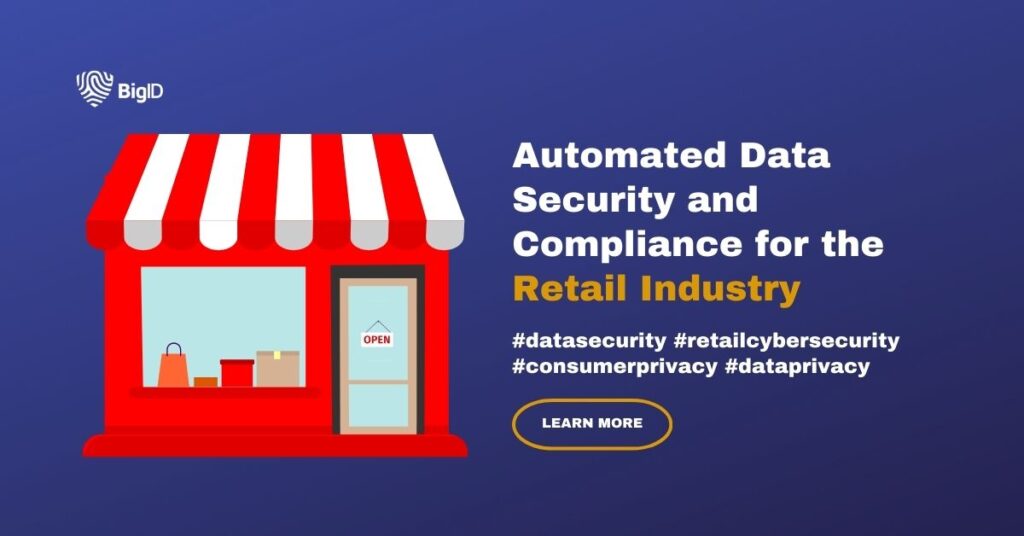If data were a goldmine, retail would be the most lucrative industry. Retailers collect, process, and store increasingly large volumes of customer data, mainly personally identifiable information (PII) and payment card data. Additionally, many retail businesses function in hybrid environments between e-commerce and brick-and-mortar, forcing retailers to manage challenges such as disjointed ecosystems, hybrid work, cloud-based online experiences, and IoT technologies. Inevitably, the future of retail is digital, hybrid, and complex, creating numerous cybersecurity risks.
Over the years, supermarkets and large retailers have introduced contactless payments, and digital buying options that have only broadened their attack surface, making it challenging to protect customer data. Furthermore, cloud-based storage and mobile apps leave remnants of data on the web, leading to data breaches and new threat vectors.
Why Retailers Need a Data-Centric Security Strategy
According to IBM’s 2023 Cost of Data Breach Report, the average cost of a data breach in retail was $2.96 million. The retail sector is highly targeted for its payment card data, with 37% of all breaches involving payment card data according to the Verizon Data Breach Investigation Report. The retail industry needs to evolve its cybersecurity strategy as it continues to leverage a hybrid model to overcome its unique data challenges.
In addition to protecting against cyber attacks, retailers must comply with increasing data privacy and regulatory requirements:
- Payment Card Industry Data Security Standard (PCI DSS): This standard applies to all retailers that process, store, or transmit credit card information and requires robust security measures to protect cardholder data.
- Health Insurance Portability and Accountability Act (HIPAA): This is relevant for retailers handling protected health information (PHI), especially in pharmacy operations, which requires measures to safeguard PHI and ensure privacy compliance.
- Federal Trade Commission (FTC) Regulations: The FTC enforces consumer protection laws in the United States. Retailers must comply with advertising, marketing practices, and consumer data protection regulations, such as SEC cybersecurity incident reporting.
- The Gramm-Leach-Bliley Act (GLBA): Applies to retailers that collect, store, and use financial records containing personally identifiable information.
- Children’s Online Privacy Protection Act (COPPA): This law governs the collection of personal information from children under 13 in the United States, requiring parental consent and transparency about data practices.
- Data Privacy Regulations: Data privacy and protection laws such as the EU General Data Protection Regulation (GDPR) and the California Consumer Privacy Act (CCPA) require compliance with multiple data management requirements.

Data Security Challenges in the Retail Industry
The retail industry is a unique landscape that differs significantly from most businesses. Retailers must consider several factors when developing a cybersecurity framework to better protect against data breaches and cybercriminals. This industry must confront these various challenges:
Limited Visibility
Data is the foundation of IT environments, connecting users, applications, and devices. However, because of their widely distributed, large, and complex IT landscape, retailers don’t always have the tools to gain visibility into all their data assets. This is a critical step to prevent cyber-attacks and ensure compliance because you can’t protect what you can’t see. There are several blind spots securing the attack surface, especially when dealing with dark and shadow data.
Omnichannel Threats
Retailers have accelerated digitization, primarily through operational technologies such as webshops, warehouses, sorting machines, cash registers, digital payment systems, IoT devices, etc. Additionally, retailers must secure large and complex IT landscapes, including networks, cloud services, checkout systems, distribution centers, and communication with suppliers across various stores. Retailers leverage omnichannel strategies to provide a unified ecosystem for consumers and suppliers. However, this offers several opportunities for cybercriminals to steal information and exploit vulnerabilities. Retailers should regularly monitor their data for unusual activity or unauthorized access.
Theft of Consumer Data
The retail industry’s digitization strategy now has millions of customers using cards more frequently in physical and online retail stores to purchase goods and services. Even though this makes it easier for both retailers and consumers, it also opens the door for cybercriminals as retailers retain the data of customers ( personal information, addresses, transactions, and financial records). There has been an increase in ransomware and phishing attacks as cybercriminals have targeted the retail industry. To secure customers’ confidential data, adhering to cybersecurity practices empowers retailers to avoid incurring the cost of financial losses.
Third-Party Attacks
The risk of a third-party cryberattack in retail is continually growing due to the interconnected systems between external suppliers, third-party vendors, and partners. These business relationships may introduce cybersecurity risks. Supply chain attacks allow cybercriminals an opportunity to attack several organizations through a single supplier. The protection of interconnected systems is necessary to prevent supply chain disruptions, cyberattacks, and unauthorized access to sensitive information. It is important to implement robust data-centric security measures, such as implementing a zero-trust model.
Loss of Revenue and Reputation Damage
There are very observable patterns in how consumers react after an organization is breached. According to an IDC study, “80% of consumers in developed nations will defect from a business because their personally identifiable information is impacted in a security breach.” Confidence breeds trust, but when there is a lack of adequate cybersecurity, retailers run the risk of financial loss and reputational damage.
How BigID Helped Retail Clients Automate Privacy, Security, and Govern Critical Data
Retail Giant Modernizes Data Discovery & Classification
Retail giant selects BigID to help achieve CCPA/CPRA/ PIPL compliance, fulfill DSAR requests, and better manage sensitive data for 100+ million customers and employees in the US and China. This collaboration streamlined privacy compliance efforts, reduced costs, efficiently fulfilled data access rights at scale, and enhanced data lifecycle management.
Global Retail Brand Accelerates Compliance and Reduces Insider Risk
A global retail and manufacturing brand uses BigID to find, discover, and classify all sensitive, critical, and personal data across complex environments. This supports secure M&A activities, boosts global compliance audits, and provides a “privacy-first” approach to accelerate data governance and security initiatives.
How BigID Helps Retailers Protect Data and Achieve Compliance
Retailers need a data-centric, risk-aware security approach to safeguard their most important data. BigID combines industry expertise with advanced technology, data security, and analytics to transform regulatory operations and drive growth while maintaining compliance. BigID enables retailers to gain complete visibility and insights into critical business data, manage risk, address data vulnerabilities, enforce security policies, secure data, and comply with regulatory requirements.
With BigID’s security-by-design approach, retailers can:
- Discover Your Data: Discover and catalog your sensitive data, including structured, semi-structured, and unstructured – in on-prem environments and across the cloud.
- Know Your Data: Automatically classify, categorize, tag, and label sensitive data with unmatched accuracy, granularity, and scale.
- Improve Data Security Posture: Proactively prioritize and target data risks and automate data security posture management (DSPM).
- Remediate Data Your Way: Manage data remediation and delegate to stakeholders, open tickets, or make API calls across your tech stack.
- Enable Zero Trust: Reduce overprivileged access and overexposed data and streamline access rights management to enable zero trust.
- Mitigate Insider Risk: Proactively monitor, detect, and respond to unauthorized internal exposure, use, and suspicious activity around sensitive data.
- Reduce Your Attack Surface: Shrink the attack surface by proactively eliminating unnecessary, non-business critical sensitive data.
- Secure Your Cloud Migration: Optimize cloud migration with data-driven insight and compliance, automatically reduce redundant data, and move the data that matters most.
- Streamline Data Breach Response: Quickly and accurately detect and investigate breach impact, facilitate prompt incident response, and notify relevant authorities and affected students and staff.
- Accelerate AI Security: BigID efficiently builds policies to govern AI based on privacy, sensitivity, regulation, and access to control the data shared with LLMs and AI applications. Use AI with responsible guardrails to manage and protect proprietary information and student data.
- Achieve Compliance: Automate compliance with end-to-end privacy and security capabilities and frameworks to protect personal, sensitive, and regulated data.
Schedule a 1:1 with one of our data security experts today.


